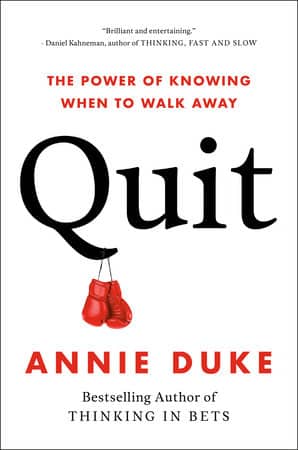When setting goals for yourself, there are two kinds of them you can go after: those that benefit you along the way, and those that only reward you if you finish. When possible, I try to go after the former.
In her book “Quit“, Annie Duke says it this way:
There are some goals that you set where there is little of value that you can glean if you come up short. While there are other goals where there are lots of things of value that you can accomplish or learn along the way, no matter whether you actually cross the finish line. Those are the types of goals we should prioritize.
Last fall, I started to really get into the Tana note-taking app and quickly made a goal to move all of my notes over to it. After some weeks of working to get things migrated, I decided that sticking with Obsidian was a better move, so I stopped that migration. While I learned a few lessons along the way, it was largely a waste of time. That was ultimately a goal where there was “little of value to glean” from it unless I completely finished.
Conversely, you can look at goals like wanting to run a marathon. If you train for months to do it and come up short, you’re still likely a far better person for it. You’ll be in much better shape, and perhaps you can “only” run a half-marathon. While you may be disappointed that you didn’t reach your goal, you’ve still accomplished a lot and you’re better off for it.
These kinds of decisions aren’t often binary (“should I choose a goal with value along the way or not?”) but at times you can adjust to get more from your journey and that seems like a great direction to go.




